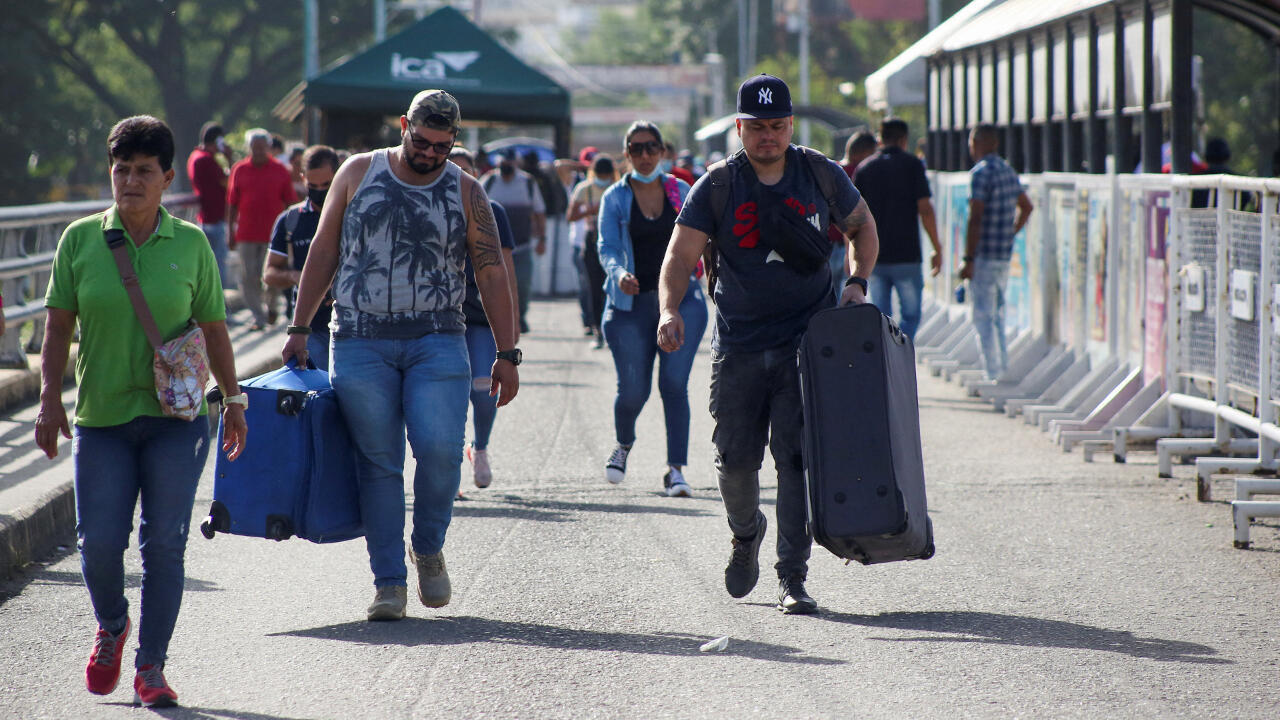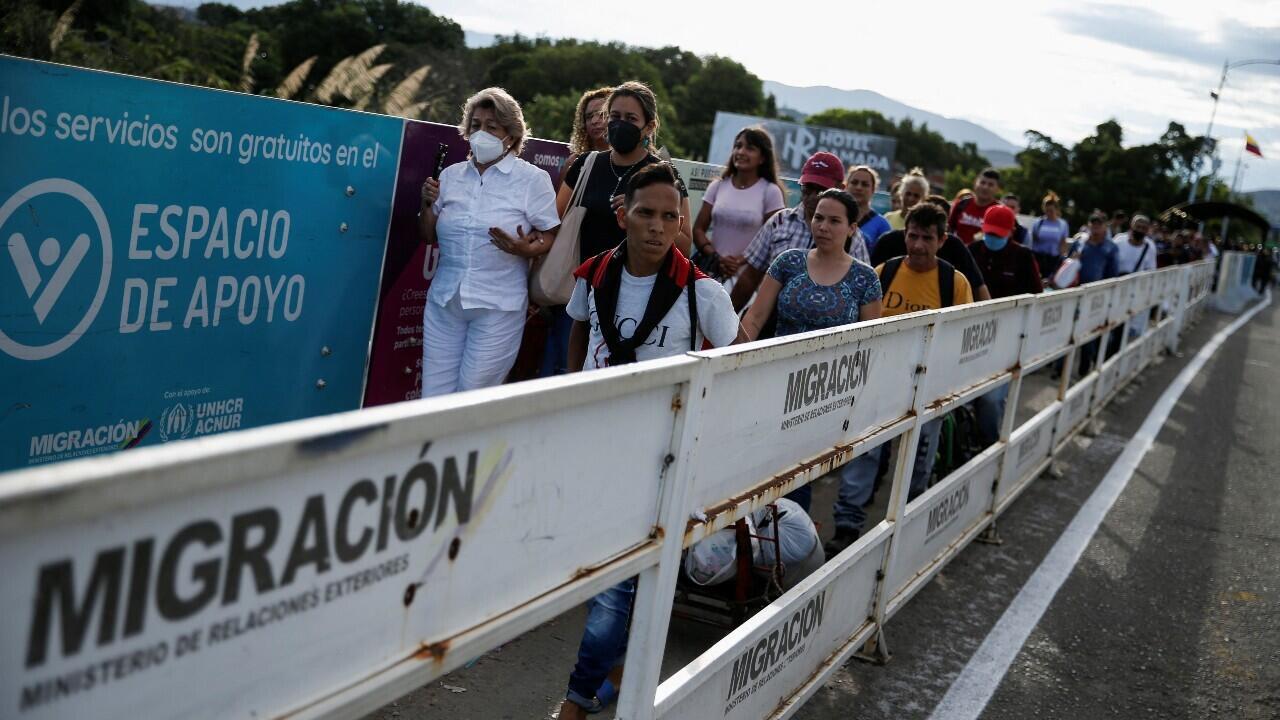First modification:
Both governments are ready to fully reopen the border crossing between their countries, closed to vehicular traffic for the last seven years after Venezuelan President Nicolás Maduro ordered it. This measure, added to the imminent reactivation of flights, marks a new stage in relations between Bogotá and Caracas, after the arrival to power of the first leftist president in Colombia, Gustavo Petro.
The seven-year closure of the land border between Colombia and Venezuela ends.
The act takes place this Monday, September 26, 2022 at the Simón Bolívar Bridge, the main border crossing between the two countries, which is expected to remain in operation for vehicular traffic from now on.
A measure that thousands of inhabitants, unions and businessmen from both sides had been waiting for. This will reconnect cargo traffic over the bridges that connect the Colombian department of Norte de Santander, in the northeast of the country, with the Venezuelan state of Táchira.
This is the area where thousands cross daily on foot, mainly Venezuelan immigrants, the only way it has been possible to travel since President Nicolás Maduro issued the ban in 2015.

Maduro ordered the closure after an incident during anti-smuggling operations in a border community. Foot traffic eventually resumed, and some of the cargo continued to move across a bridge further north.
With the new disposition, the total recovery of what was the busiest border crossing in Latin America, a border line of more than 2,200 kilometers.
“This is the reopening after seven years of intermittent or permanent closures of the border, where both the people of Táchira (Venezuela) and the people of Norte de Santander (Colombia) are going to have a wonderful reunion,” he stressed on the eve the Minister of Commerce, Industry and Tourism of Colombia, Germán Umaña, who met on Sunday, September 25, with the local authorities to supervise the preparations.
End the “trails”, another objective of the reopening of the land border
Umaña also pointed out that another of the main objectives of this measure is to end “forever the trails”, the unauthorized steps used by citizens of the two countries as an alternative to the closure of pedestrian crossings.

Goods of all kinds have continued to enter Venezuela illegally on dirt roads run by armed groups and others with the blessing of officials on both sides of the border. Similarly, illegal imports also enter Colombia, but on a smaller scale.
Also, criminals use the dirt roads for drug and human trafficking, authorities say.
A new stage in relations between Bogotá and Caracas
The reactivation of the legal steps is registered after it was announced simultaneously on September 9 by both governments, which indicated a step towards the full normalization of relations between the two countries.
At that time, their administrations also reported the resumption of flights, suspended since the appearance of the Covid-19 pandemic.
“The exchange and cooperation between our peoples are off to a good start,” President Nicolás Maduro wrote at the time.
Last Saturday, September 24, the Colombian ambassador in the Venezuelan capital, Armando Benedetti, confirmed that The air reconnection also takes place this September 26, with a flight from the Venezuelan company Turpial Airlinescoming from Caracas and bound for Bogotá.

From the government of the late president Hugo Chávez, who inherited the Executive from Maduro, the two nations have exchanged strong accusations, especially for the presence of Colombian armed groups that, according to the indications of previous governments in Colombia, have been welcomed by the authorities. Venezuelans.
But in 2019, relations were even more affected. They broke when the then Colombian president Iván Duque recognized, along with more than 50 countries, including the United States, the leader of the Venezuelan opposition, Juan Guaidó, as president of Venezuela.
The announcements of the diplomatic rapprochement came a month after Gustavo Petro took office as Colombia’s first leftist president, sparking a thaw between Bogotá and Caracas.
Petro, who took office on August 7, abandoned his predecessor’s opposition to Maduro and quickly moved to restore relations with his government. Both have now accepted their respective ambassadors.
Maduro and Petro are expected to continue adding measures that mark a new milestone in relations between the two neighboring countries.
With EFE and local media







![[Img #74683]](https://thelatestnews.world/wp-content/uploads/2024/12/The-main-mistakes-to-avoid-when-betting-on-electronic-sports-150x150.jpg)





